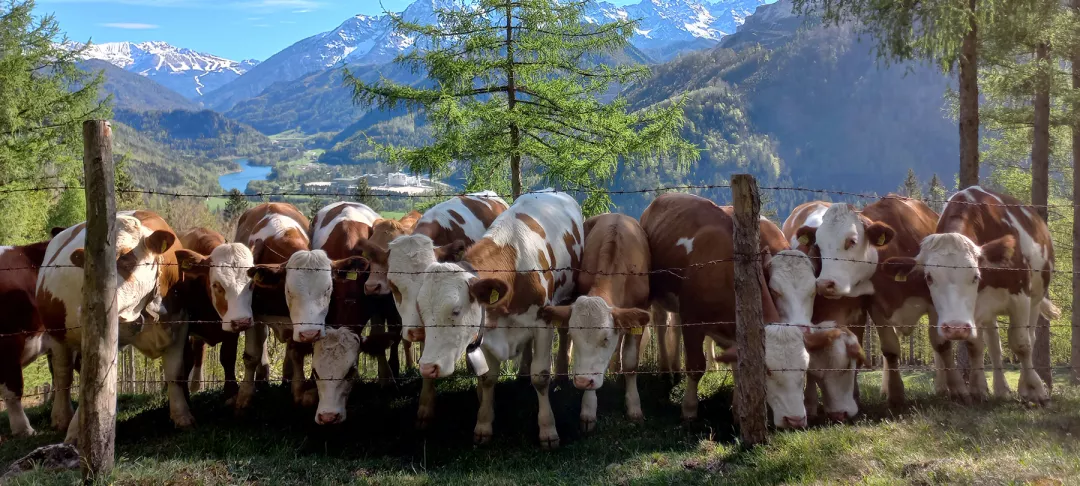Inspirational idea: showcasing the added value of ecosystem services of farming in mountain areas
- Innovation, knowledge exchange & EIP-AGRI
- Climate and Climate Change
- Fostering Knowledge & Innovation
- Rural Development
- Socio-economic Impacts
‘Value-added mountain farming’ is an Operational Group in Austria developing business models based on ecosystem services to improve the socio-economic and environmental resilience of mountain areas and their communities.

Farmer Regina Aspalter is leading an Operational Group within the Kalkapen National Park in the region of Upper Austria, a project to showcase how new business models could be created that enable farmers to generate income from ecosystem services in mountain areas.
Covering around 30% of the EU territory, mountain areas face significant challenges that make them both ecologically and socially fragile. Regina says: “By diversifying farming income and developing a wide range of ecosystem services, farmers can have a huge positive impact on local communities while ensuring their farms are viable, competitive and sustainable businesses.”
The new business models for mountain farmers focus specifically on ecosystem services related to nature conservation and biodiversity. In this mountainous region of Austria, certain features can be observed in high quantities, such as extensive grasslands and pastures. These areas boast rich biodiversity, housing a diverse array of plant and insect species. They also play a crucial role in groundwater recharge, contributing to high water quality and maintaining the typical image of the cultural landscape.
The project started in 2022 and will end later this year. Four farmers are involved in the Operational Group and have been working with research organisations to assess the benefits of ecosystem services linked to nature conservation and biodiversity. The project partners began by carrying out an analysis to quantify and map measurable and marketable ecosystem services in the context of mountain agriculture in the Kalkapen National Park. As part of this analysis, the project consulted and involved external stakeholders, including 30 other farmers, and carried out a data-based assessment of the ecosystem services.
Regina explains: “Researchers from the project have helped to turn this information into indicators to measure a farm’s performance in relation to the ecosystem services studied.”
Based on this, the business models are being studied to reward farmers for environmental performance. These include grants, loan interest discounts or acknowledgement through specific labels and certifications. In order to roll this out, the partners are in contact with companies, banks and public authorities. Regarding these different rewarding options, the project is specifically interested in forming strategic partnerships with commercial enterprises to market the ecosystem services. For this, close cooperation between agriculture, business and science will create a long-term opportunity to generate additional income for mountain farms. The new marketable business models arising from the project will be shared on a specially developed platform.
Our results so far show that we, mountain farmers, have a high level of awareness and implementation rates of biodiversity-friendly practices. Such practices can be compensated to support the viability of our farms and keep stimulating our performance. Furthermore, practices which protect biodiversity or clean water retention will represent an increasingly important social and economic value in the future.
Contact: Anita Haider - anita.haider@blw-npregion.com